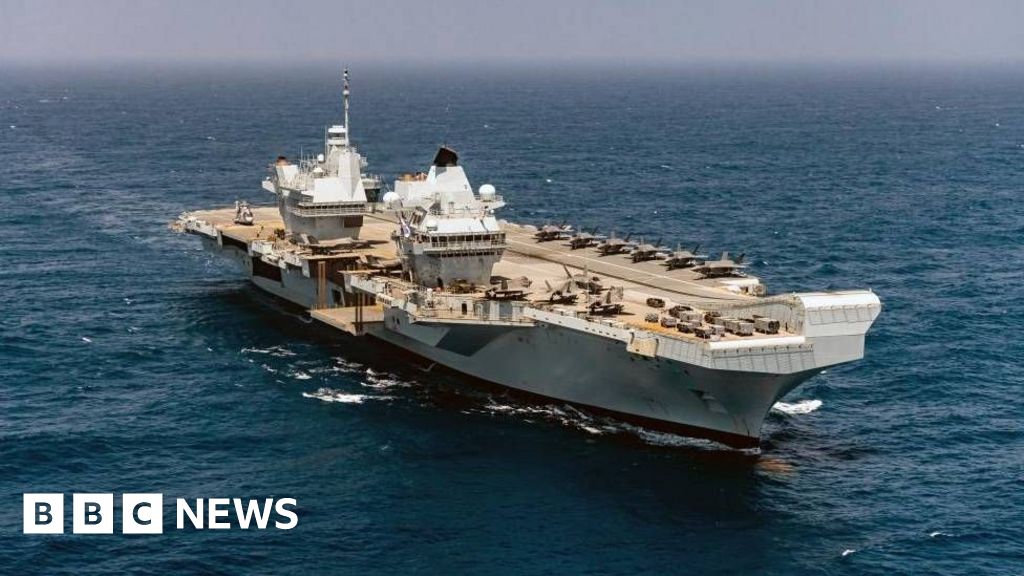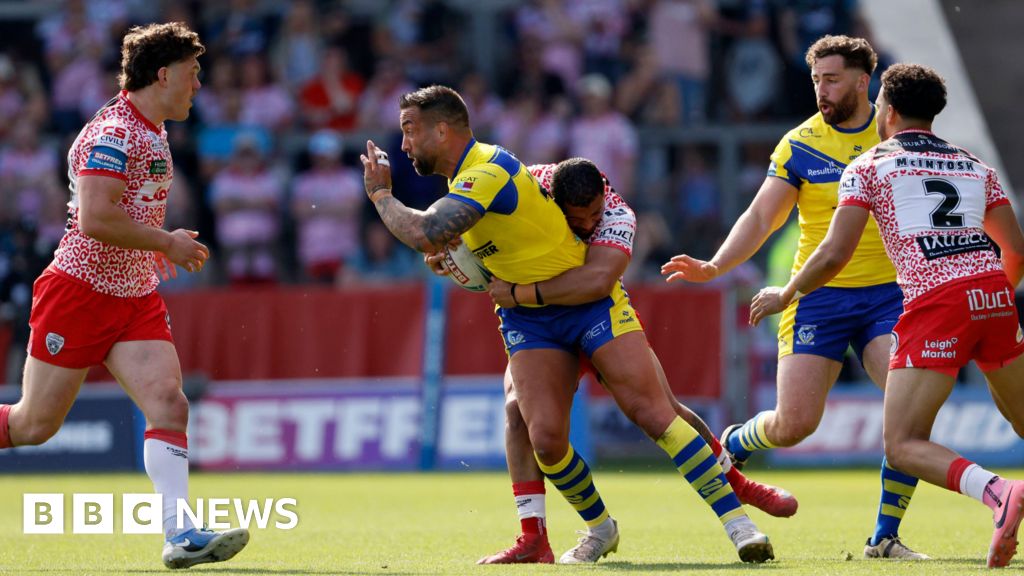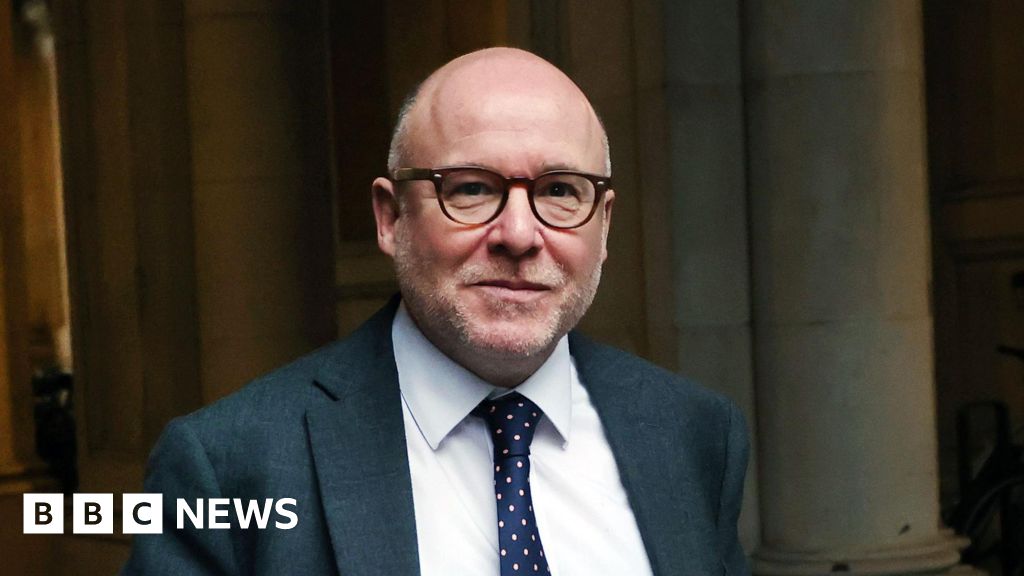ARTICLE AD BOX
By Chris Mason
Political correspondent, BBC News
A fractious UK. A fractious Westminster.
As the final votes are counted, we can now survey where these elections leave the country, and those who lead us - and what happens next.
What has happened in Northern Ireland is profound. For the first time since its creation just over a century ago, a party that seeks unification with the Republic has won an election there.
After a decade where jitters, or delight - depending on your point of view - over the strains on the United Kingdom have focused on Scotland, now those strains start to become visible in Northern Ireland too.
Our political conversation has become used to the debate about Scotland's future.
But it is worth spelling out the obvious about Scotland and now Northern Ireland, even if imminent significant change is unlikely.
Parties that seek to unpick the very stitching that holds together the collection of nations that makes up the UK are, in Northern Ireland's case, in the ascendancy; in Scotland's case, continuing to dominate.
For Boris Johnson, who, incidentally, includes 'Minister for the Union' in his collection of job titles, that is a headache that's just got a little more uncomfortable.
But don't expect radical change immediately in either Scotland or Northern Ireland.
Image source, Charles McQuillan/Getty Images
Image caption,Sinn Féin, led by Michelle O'Neill and Mary Lou McDonald, want Northern Ireland to leave the UK and reunite with the Republic of Ireland
The status quo can be sticky, even when it looks like everything has changed.
Sinn Fein has gone out of its way to emphasise that its short term priorities are day-to-day concerns like the cost of living crunch and the parlous state of Northern Ireland's NHS, rather than constitutional questions.
And the Democratic Unionist Party's ongoing concerns with what is known as the Protocol - the Brexit deal they hate because it treats Northern Ireland differently from the rest of the UK - means they are not likely to go back into devolved government any time soon.
And, add to this, a not very catchy but significant new law, the Northern Ireland (Ministers, Elections and Petitions of Concern) Act 2022 which gives the parties six months to work out what they're going to do.
On Monday, we can expect the Northern Ireland Secretary Brandon Lewis to call the parties in, one by one, for a chat in his new-ish office, Erskine House in Belfast city centre, to talk through what happens next.
And we can expect a nod in the Queen's Speech on Tuesday to a willingness for the government to change the law on the Protocol, without actually committing to doing so immediately.
They have "four dimensional diplomatic chess" to pull off, as one source put it to me - trying to resolve the impasse in Northern Ireland, while maintaining a functional relationship with the European Union.
Beyond the specifics, there's a long term challenge for the government: the rise of Sinn Fein in both Northern Ireland and the Republic and the prospect, perhaps still several or more years away, of what is known as a "Border Poll" - a referendum on whether Northern Ireland remains part of the UK or becomes part of the Republic of Ireland.
Image source, PA Media
Image caption,SNP leader Nicola Sturgeon celebrated the party's success with candidates and supporters in Glasgow
And in Scotland, the prospect of another referendum hovers too. The Scottish National Party don't find themselves falling back on the "mid term blues" excuse used by the Conservatives.
The Tories have slipped to third place behind Labour, and the SNP have been in government at Holyrood for 15 years and still dominate the Scottish political landscape.
But few expect another independence referendum by the end of next year, as the First Minister Nicola Sturgeon has said is her plan.
A combination of the prime minister's reluctance to grant one, and opinion polls not suggesting independence would be a certainty, could mean a mutually convenient postponement is most likely.
But make no mistake - step back, and there are two question marks now hanging over the United Kingdom's long term future.
And so from a fractious UK, to a fractious Westminster.
This weekend, wrangling is still going on within government about precisely what is mentioned and with what emphasis in the Queen's Speech on Tuesday.
The State Opening is an opportunity for any government to hit the reboot button, and a reboot button garnished with regalia, pomp and fancy dress.
An opportunity - ministers hope - to demonstrate ideas, energy and direction.
Not unhelpful after something of a whacking in the elections.
Losses in England, going backwards in Scotland and a result in Wales, the loss of 80 councillors which was described as "disastrous" by a Welsh Conservative deputy chairman.
But despite all that, the mood in government, from the ministers I speak to, is chipper.
"It's mid-term, we've been in government for 12 years, there's a war on, there's been a pandemic, there's a serious global economic crunch, one cabinet minister points out, suggesting the local election results could have been a whole lot worse for the Conservatives.
Where the two big parties at Westminster are left is broadly where they were before polling day: in a sticky status quo.
Some of the shine is coming off Boris Johnson in the view of some chunks of the electorate.
And some are willing to give Labour another look, but, from the Opposition's perspective, not enough to be confident they can win the next general election.
It is a hugely significant development.
Watch: Footage shows Sir Keir Starmer drinking beer with colleagues in Durham on 30 April 2021
For as long as the police take to decide what to do - and Labour have no idea how long it might take - it neutralises Sir Keir Starmer's attacks on the so-called partygate rows involving the prime minister.
And if Sir Keir is fined, he may conclude his position is untenable.
Not for getting a Fixed Penalty Notice, but for saying the prime minister should go because he was investigated by the police, and then fined.
Sir Keir, like millions of others, was outraged at the behaviour within government - and sought to make political capital out of it for months.
But his critics, and plenty of senior Conservatives, are delighted at the turn of events, and say if you get on a moral high horse, you might get shaken off it. It might just turn into a bucking bronco.
His team continue to insist "he ate between work demands. No rules were broken."
Of course, the police might decide he didn't break the rules.
And the prime minister may yet face further fines or further excruciating evidence of what was happening - on his watch, even involving him - during lockdowns.
But right now it is Sir Keir Starmer in a very awkward corner.
His political career is quite possibly being determined inside Aykley Heads, the headquarters of the Durham Constabulary.

 3 years ago
61
3 years ago
61








 English (US) ·
English (US) ·